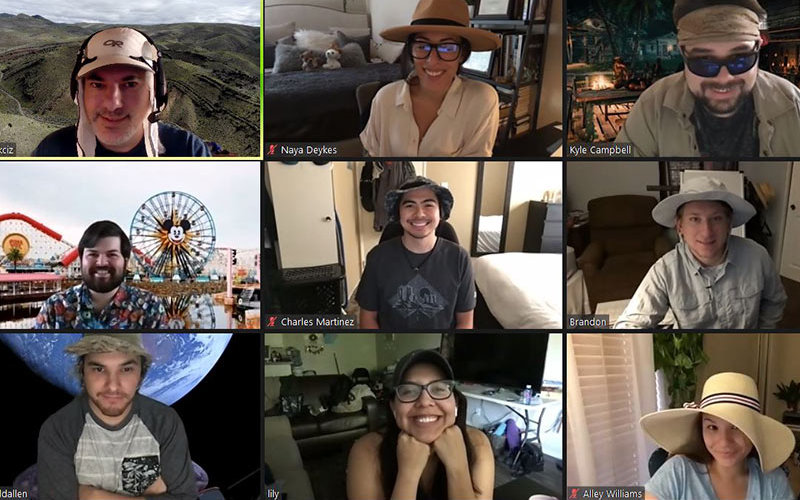
This summer, geology major Priscilla Martinez didn’t get to experience long days of hiking in the field or bonding with classmates over a bonfire.
Instead, she spent four weeks in Cal State Fullerton’s first-ever virtual “Geology Field Camp” course, where she still gained valuable knowledge to excel in the geoscience world. The traditional summer field camp was held virtually due to the coronavirus pandemic.
“I had the opportunity to collect digital data and interpret geologic events in different field locations without having to physically visit the sites,” said Martinez, who graduates in August with a bachelor’s degree in geology.
For the course, she used various software tools, such as Google Earth Pro, to digitally map rock formations and other geological features in the field. These included places like Frying Pan Gulch and Block Mountain, near Dillon, Montana, and geologic events that occurred between 2.6 million years ago to present day in Owens Valley, east of the Sierra Nevada mountains.
During the last week of field camp, she constructed a detailed history of the geological process in which sediments, soil and rocks created a landform between 24 to 5 million years ago in California.
Martinez also was awarded a 2020 J. David Lowell Field Camp Scholarship from the Geological Society of America to attend summer field camp. The $2,000 national scholarship for undergraduate students is awarded based on diversity, financial need and merit.
“It was an honor to receive this award as a Latina and first-generation college student who has a passion for geoscience research and community outreach,” she said.
Martinez was among 13 students in the upper-division course for geology undergraduates. During June, students conducted advanced geologic mapping in a variety of geologic settings. For the virtual course, the instructors, Sinan Akçiz and Kathryn Metcalf, both assistant professors of geological sciences, created projects similar to those students might be tasked with while working at a geology consulting company.
“These projects involved creating reconnaissance geological reports of sites that their companies are interested in investing in for further development,” Akçiz said.
These reports included a compilation of published data, detailed mapping using satellite imagery and interpretations of the subsurface geology using various techniques students learned in their geology courses.
“While we could not replicate the recognition of different rock types in the field, we relied more on the outcropping pattern of different rock types and recognizing their textures on satellite imagery. All of our students did a very good job in quickly adjusting to these new project-based virtual modules and produced high-quality geology reports,” Akçiz added.
For her senior thesis, Martinez delved into research to determine the volcanic sources and ages of two ash beds in the oil-bearing Modelo Formation (Modelo) in Balcom Canyon, located in Ventura County. Under the mentorship of Jeffrey Knott, professor emeritus of geological sciences, she identified, collected and mapped ash samples at the field site, and correlated the glass shards in the ash to other well-known samples in the lab.
Her research results found that the source for one of the ash beds is the Yellowstone caldera, which means that airborne volcanic ash traveled over 600 miles from its source into California nearly 9 million years ago.
Martinez, who served as the 2019-20 president of the student Geology Club, will begin the master’s degree program in geology at Cal State Northridge in the fall. She aspires to earn a doctorate and pursue a career as a university professor.
“As a researcher, I recognize the value of empowering students from diverse backgrounds to seek a career in geosciences. I intend to cultivate a successful and inclusive environment for students to discover their potential as geoscientists,” she said.
Contact: Debra Cano Ramos, dcanoramos@fullerton.edu